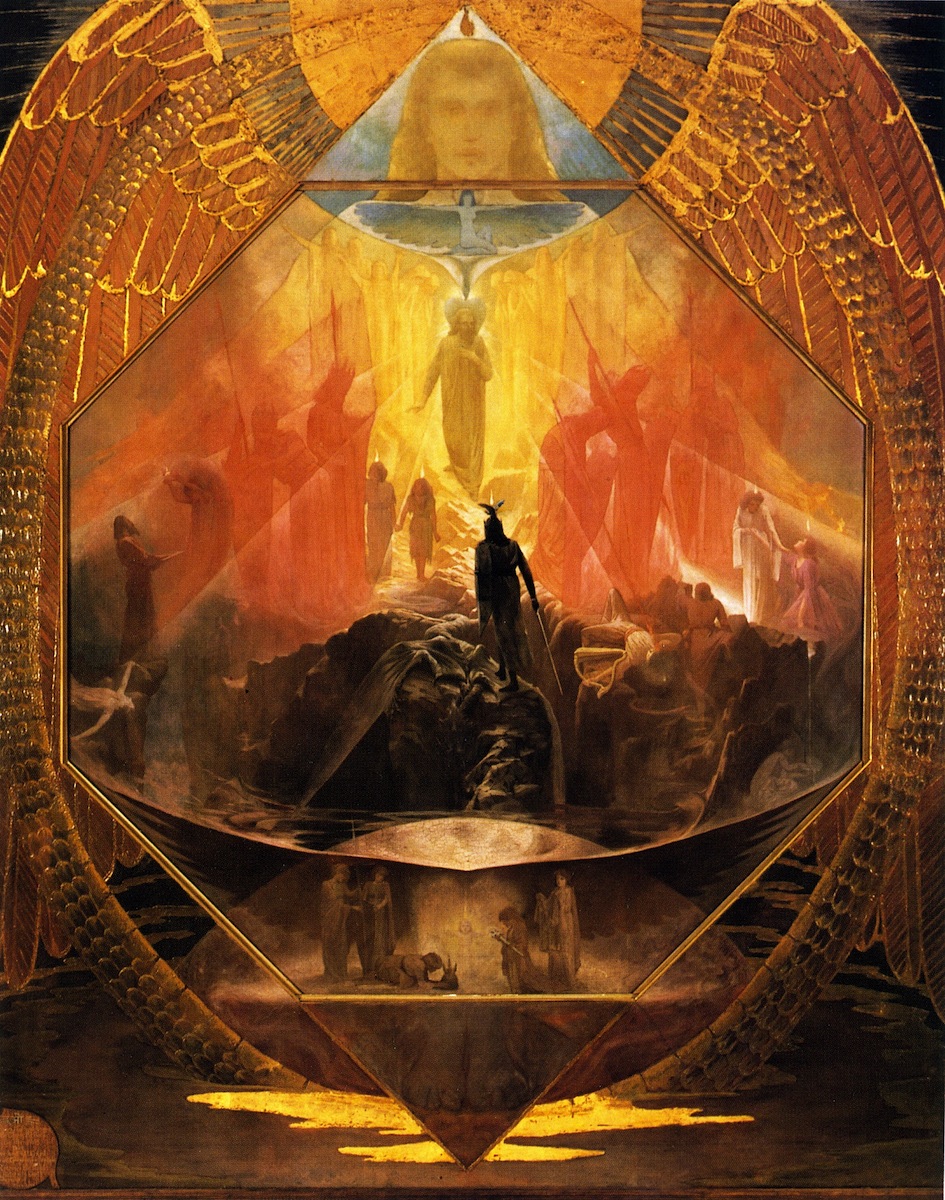“Under the sun, every religion is born, grows, develops, multiplies into many sects, and dies. This is how it has always been and will always be. Religious principles never die. The religious forms can die, but the religious principles, in other words, the eternal values, can never die. They continue; they are re-dressed with new forms.”
–Samael Aun Weor, Revolution of the Dialectic
“The most beautiful and deepest experience a man can have is the sense of the mysterious. It is the underlying principle of religion as well as all serious endeavor in art and science . He who never had this experience seems to me, if not had, then at least blind. To sense that behind anything that can be experienced there is something that our minds cannot grasp, whose beauty and sublimity reaches us only indirectly: this is religiousness. In this sense I am religious. To me it suffices to wonder at these secrets and to attempt humbly to grasp with my mind a mere image of the lofty structure of all there is.”
-Albert Einstein, My Credo
“Every time that a man has, with a pure heart, called upon Osiris, Dionysis, Krishna, Buddha, the Tao etc, the Son of God has answered him by sending him the Holy Spirit. And the Holy Spirit has acted upon his soul, not by inciting him to abandon his religious tradition, but by bestowing upon him light…in the heart of that same religious tradition.”
–Simone Weil, Gravity and Grace
“Religion is Magic sanctioned by authority.The Wise understand what true religion is- the eternal necessity that is. For debased souls, religion is a yoke imposed by the vagaries of fear and follies of hope. For exalted souls, religion is a force, springing from an intensified love of God and humanity.”
-Eliphas Levi
Religious Principles
Religious principles are universal, unifying, uplifting. Religious principles are impulses from the divine that work to penetrate into the very best that each human has within themselves, which is the essence, and to elaborate that essence into a true soul and a true divine spirit. Religious principles include tolerance, humbleness, devotion to God/Goddess, upright living, ethical guidelines, inspiration through prayer, music, chanting, ritual, ceremony, and rites of passage. A thriving religion will elevate culture, and cultivate a deep humaneness, love, and wisdom among its constituents.
“If the gods were adored in antiquity, they are also adored now, except with different names. Religious forms change according to the historical times and the races. Each race needs its special religious form. People need religion. People without religion are in fact totally barbarian, cruel, and pitiless.”
-Samael Aun Weor, Revolution of the Dialectic
Religious Forms
“We must make a clear distinction between religious forms and religious principles.
Religious principles are living cosmic formulas and religious forms are the diverse systems or ways of teaching these principles.”
-Gnostic Society Samael Aun Weor
Religious principles manifest in diverse forms throughout time and space. At times religions are monotheistic, at times, polytheistic, since God is a multiple perfect unity.
What makes religions beautiful are their forms and their principles. The form is the tradition, the principle is the revelation. Adherents of any religion must connect deeply within themselves to the principles, to connect with their own inner Being. Devotees of any religion must appreciate the beauty and diversity and truth within their own and other religions.
“The Divine Rabbi of Galilee has the same attributes as Zeus, Apollo, Krishna, Quetzalcoatl, Lao-Tse, Fu-Xi the Chinese Christ, Buddha, etc.
The poor and unknown Hebrew woman Mary, mother of the adorable Savior Jesus the Christ, received the same attributes and cosmic powers as that of the Goddess Isis, Juno, Demeter, Ceres, Vesta, Maia, Adonia, Insobertha, Rea, Cybele, Tonantzin, etc. [ ]
Among the Japanese, the Christ is Amida, who by praying for all sinners intercedes before the Supreme Goddess Ten-Sic-Dai-Tain. Amida, the Japanese Christ of the Shinto Religion, is the one who has the powers to open the doors of Gokuraku – Paradise. [ ]
The German Eddas mention the Khristos, the God of their theogony, who similarly to Jesus was born on the 24th of December at midnight; the same occured with Odin, Wotan, and Belen. [ ]
When one studies the Gospel of Krishna the Hindu Christ, one is astonished upon discovering the same Gospel of Jesus. However, Krishna was born many centuries before Jesus. [ ]
Devaki, the Hindu virgin, conceived Krishna by the action and grace of the Holy Spirit. The child-God Krishna was transported to the stable of Nanden and the gods and angels came to adore him. The life, passion, and death of Krishna are similar to that of Jesus. [ ]
It is worthwhile to study all religions. The comparative study of religions leads one to comprehend that all religions conserve the eternal values, that no religion is false, that all are true. [ ]
All religions are precious stones strung on the golden thread of Divinity.
All religions conserve the eternal values. False religions do not exist.
All religions are necessary; all religions fulfill their mission in life.”
-Samael Aun Weor, Revolution of the Dialectic

